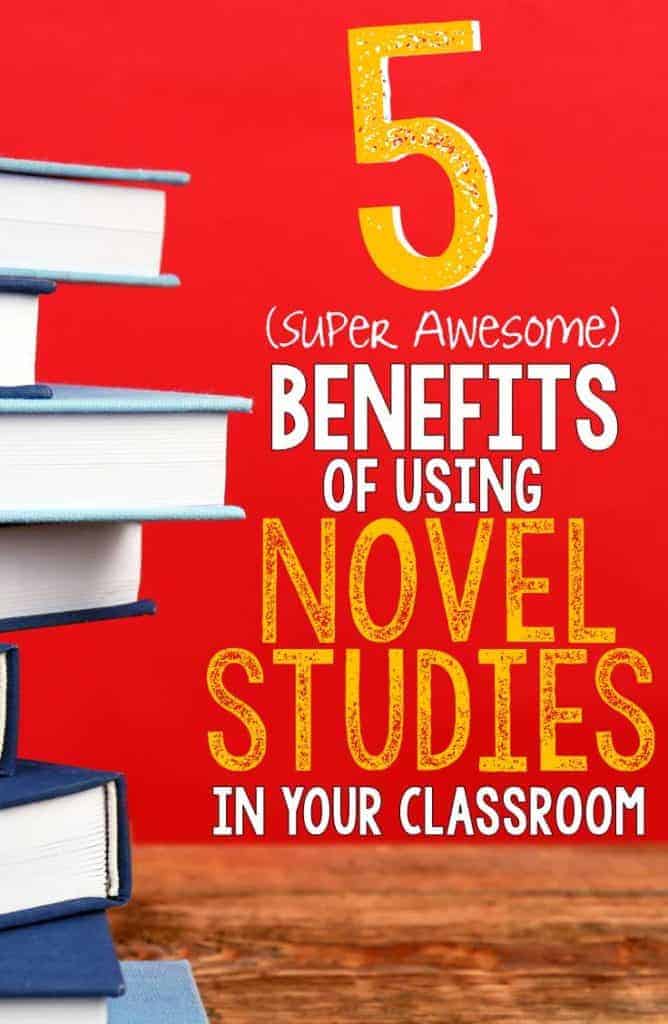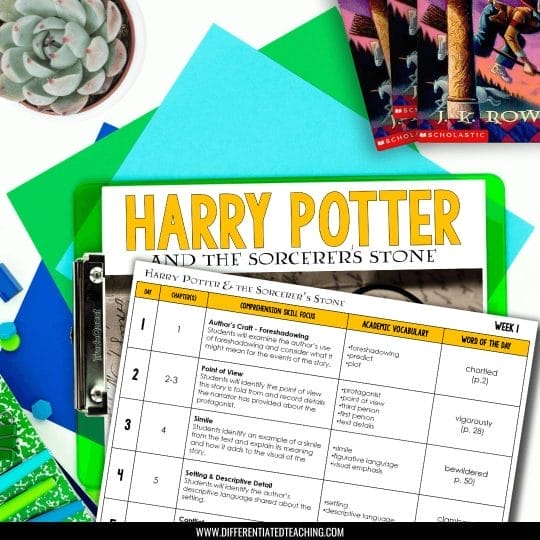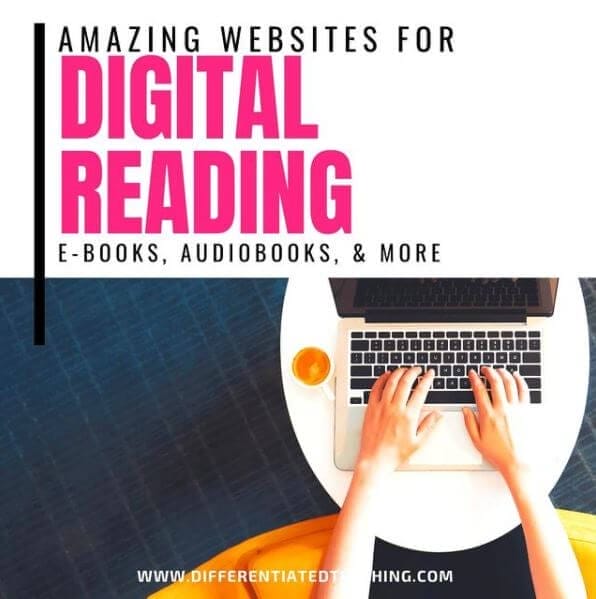Book Study Benefits: Enhancing Education with Group Reading
Let’s chat about something near and dear to my heart: book studies. We all know how amazing reading is, right? It’s like a key that unlocks new ideas, piles up our knowledge, and stretches our thinking to new places.
But here’s the thing: When we read together in a group, it gets even better.
In this post, I’m excited to dive into how group reading and a good book study can totally amplify the magic of learning. So, grab your favorite book and a comfy chair, and let’s explore why group reading is a game-changer for our learners!
10 Benefits of a Book Study – Why Group Reading is So Important for All Learners
Have you ever felt that book studies require more time and effort than they’re worth? My goal today is to shift your view and inspire you to dive in. There are numerous advantages to incorporating book studies and whole-group or small-group reading opportunities in your classroom.
Ready to hop in and learn more? Let’s dive into the benefits of novel studies for your readers.
1. A book study can build a stronger community.
Group reading isn’t just about the books; it’s about the wonderful sense of community and togetherness it brings. Imagine diving into a story and sharing that adventure with others who get as excited as you. That feeling of connection and belonging? It’s pretty powerful and really ramps up the whole learning experience for your learners.
But wait, there’s more!
Group reading opens the door to some fantastic social interactions. Your learners get to chat about the book, exchange thoughts, and even ask those burning questions. This not only deepens their understanding of what they are reading but also brings in fresh perspectives we might not have thought of on our own. How cool is that?
2. Book study discussions unlock deeper learning.
There’s something truly special about sharing a book with others. When learners read solo, their minds might buzz with questions and ideas, longing for a space to let them fly. Enter the book study group, where they can toss these thoughts into the ring and watch them spark amazing discussions.
These conversations do more than just pass the time; they open reader’s eyes to new ways of seeing the story. Hearing different viewpoints and interpretations is like adding new colors to our mental palette, challenging what we thought we knew, and expanding our understanding.
Plus, it’s a fantastic way to flex their critical thinking muscles, diving deep into thoughtful analysis and lively chats about what we’ve read. Isn’t it incredible how a simple book discussion can turn into such a rich learning journey?
3. Group reading enhances reading comprehension.
When students dive into group reading, it’s like opening a treasure chest of understanding, especially with those tricky concepts.
Picture this: a student is reading a challenging book and hits a tough spot. It can feel a bit overwhelming, right?
But in a group setting, they’re not alone. They have their classmates, each with their own unique perspectives and insights, ready to help unravel those complex ideas.
This collaborative environment is perfect for students to ask questions, seek clarifications, and get those “aha!” moments from their peers. It’s not just about getting through the tough parts; it’s about deepening their comprehension together.
So, when a student encounters a puzzling passage, there’s always someone in the group who can shed some light on it, making sure everyone keeps pace and truly benefits from the reading experience. It’s teamwork at its best in the world of learning!
4. A book study can build background & offer exposure to new ideas.
Looking for an opportunity to expose students to experiences outside their current reality? A book study is just the ticket. For my city-dwelling students, the novel study I planned around Charlotte’s Web exposed them to the realities of farm life they may not have otherwise had.
Whether you’re looking at sharing new cultures, historical time periods, or just an understanding of life circumstances outside their own, a good novel study can be the key to opening the door to understanding.
5. Group reading offers authentic opportunities to teach vocabulary.
A well-developed vocabulary is foundational for success, which is one of the huge benefits of novel studies. Here’s my favorite example:
“What’s a hullabaloo?”
This question arises every time my students read Charlotte’s Web, and I love it! Suddenly, I’ve got free reign to engage my students with context clues and transfer new vocabulary outside the text.
First, we puzzle it together based on what’s happening in the story.
Then we practice making some chaos to create a big hullabaloo. We talk about times we’ve been a part of (or noticed something that might be considered) a hullabaloo. Basically, we dig deep in a short time span.
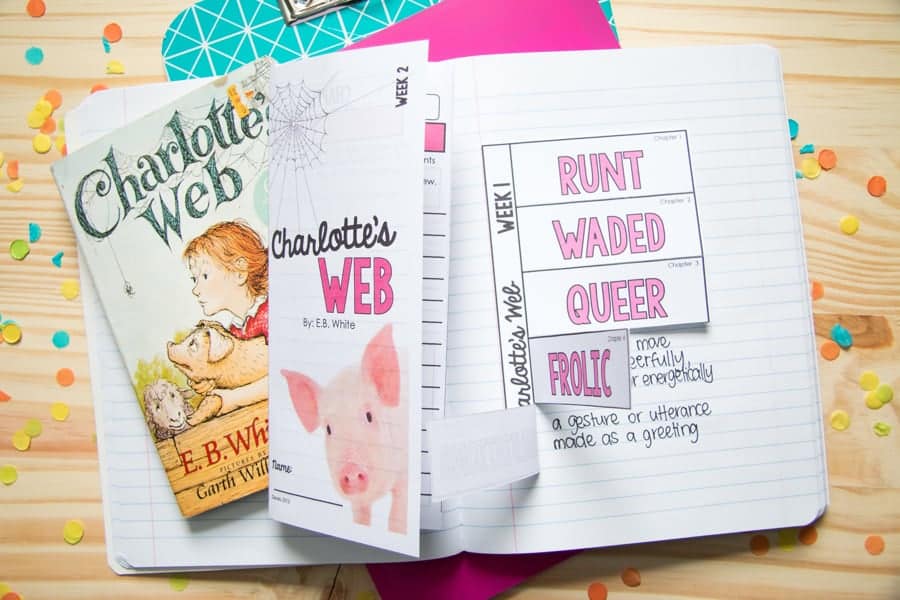
By the end of the 5-minute mini-lesson, my kids are masters of hullaballoo.
How do I know? Because for the next month, I hear it anytime things get a little crazy.
And, of course, I use it to my advantage when the classroom gets noisy.
What’s all the hullabaloo? It quiets them down immediately EVERY. SINGLE. TIME.
6. Book studies build motivation & accountability.
Group reading really steps up the game when it comes to keeping our students on track. You know how it is when they’re reading solo; distractions are everywhere, and sometimes that motivation slips away. But, throw them into a group reading scenario, and watch how things change! Suddenly, they’re not just reading for themselves; they’ve got their classmates counting on them.
This sense of responsibility to their reading buddies does wonders. It nudges them to stay focused, keep up with the reading, and be ready to jump into discussions. This kind of friendly accountability can drive our students toward success, helping them stick to their goals and really soak up all that knowledge. It’s like having a team of cheerleaders rooting for each other’s learning victories!
7. Group reading & book study discussions build communication skills.
These days we’ve all got speaking and listening standards to address. This is another of the great benefits of novel studies.
Using literature circles during your novel study teaches students how to cooperate, take turns, and engage in peer discussions. Of course, this takes some modeling and guidance (maybe even some significant support, depending on the student).
However, it is an important skill to build as students look toward the future. I’d much rather watch them build it during a book study than see my students ten years later, clueless about how to have an intelligent discussion about learning.
8. Book studies offer opportunities to discuss social skills and SEL in real-world contexts.
As they dive into the plot of a novel, kids are exposed to the situations, confrontations, and challenges the main characters face.
Whether you’re working through Holes novel study and discussing Stanley’s unfortunate situation of being punished for a crime he didn’t commit or experiencing the thrills (and challenges) of being independent like Claudia Kincaid in From the Mixed-Up Files of Mrs. Basil E. Frankweiler. Your students are pushed to think about how they’d react.
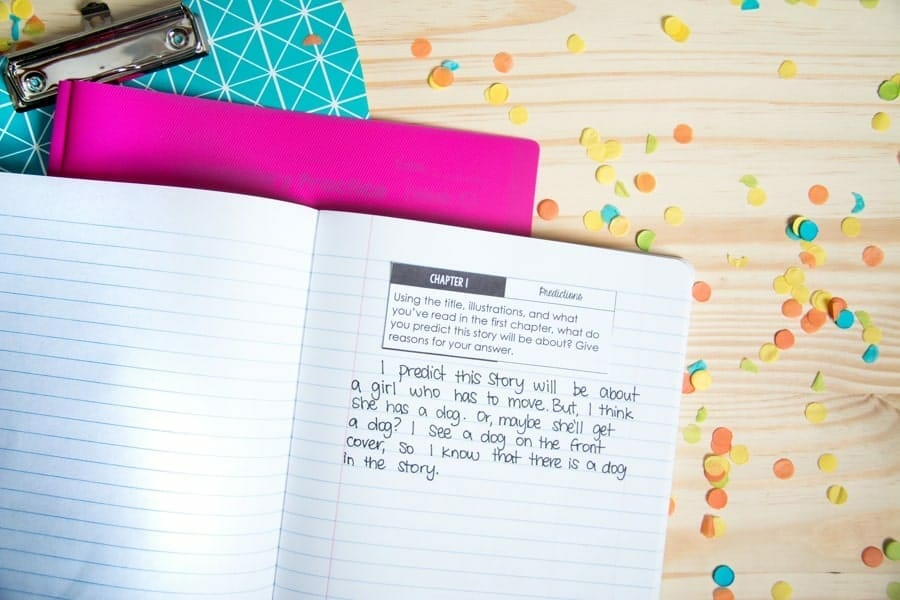
Studies have shown this helps develop essential social skills, such as empathy. There’s even a type of therapy based on the practice (called bibliotherapy)! Clients are given a book with a character in a similar situation to their own to help develop a coping strategy.
9. Book studies encourage students to see the story from new points of view.
In the world of group reading with our students, there’s a special kind of magic that happens with the mix of different perspectives. During independent novel studies, they explore from their little corner of the world.
But when they’re participating in a book study? That’s where the horizons really expand. They get to hear from classmates who come from all sorts of backgrounds, each with their own unique set of beliefs and experiences.
This melting pot of viewpoints opens up a whole new dimension of understanding. It’s not just about seeing the story from different angles; it’s about building empathy and getting a real sense of how diverse our world is.
As our students share and listen, they start seeing through each other’s eyes, enriching their grasp on the complexities of life and the human experience. It’s a beautiful way to broaden their minds and hearts, all through the power of group reading
10. Group reading fosters lifelong learning habits.
Group reading does more than guide students through a book; it plants the seeds for a lifelong love of learning. Imagine our students gathered together, each bringing their own spark of curiosity. As they share and explore, they’re not just getting through a story; they’re opening doors to new ideas, perspectives, and a whole world of knowledge.
This exposure is like a gentle push, encouraging our students to keep seeking… to keep growing. It’s about creating a supportive space where their love for learning can flourish, where every book is a stepping stone to the next big discovery.
This isn’t just about the now; it’s about nurturing a commitment to lifelong learning, helping our students carry this curiosity and enthusiasm wherever life takes them. It’s about setting them on a path of endless exploration and personal growth.
A well-planned book study leaves your students wanting more.
I, personally, love to plan the day’s reading to stop at a cliffhanger moment! It leaves my students wondering (and making predictions about) what will happen to those beloved characters they’ve become so attached to.
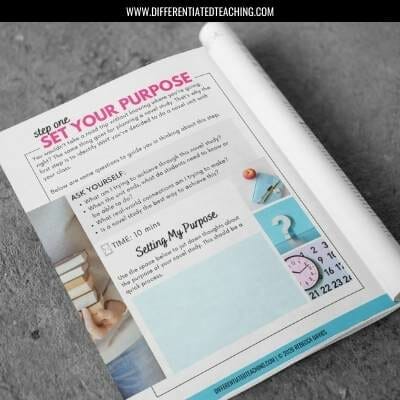
Using book studies as an anchor across multiple subject areas builds engagement. While we all know novel studies allow us to teach key reading skills in context, they also let us connect to science and social studies concepts.
Whether using area and perimeter to create a pen for Wilbur in Charlotte’s Web or exploring natural resources for Brian’s survival in Hatchet, you can seamlessly link story plots with curriculum standards. These hooks encourage deeper thinking and problem-solving. They also mean that the learning lasts longer and sticks with students across the year.
The Enduring Value of Book Studies
In conclusion, book studies are a powerful learning and personal growth tool. It provides social interaction, discussion, accountability, and diverse perspectives that enhance the reading experience. Group reading fosters critical thinking skills and a love of lifelong learning.
Whether you join a homeschool book club or have your students engage in novel study reading groups, a book study is the ultimate learning tool.
So gather your students and find fellow book lovers to start reaping the benefits of group reading with a book study today. You can find over 200 premade book study resources perfect for group reading in my shop at Teachers Pay Teachers.
